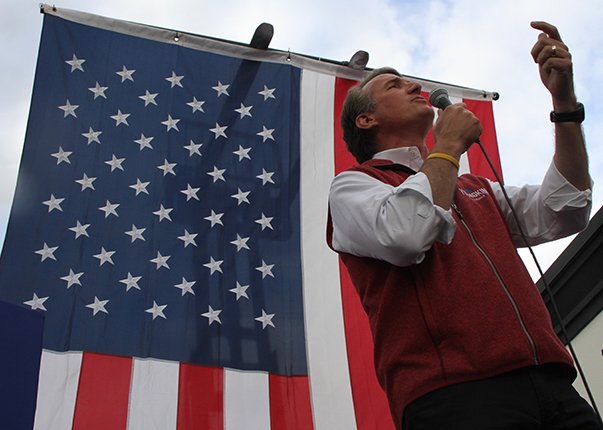Some Fine States, Part V - The Wrap
Glenn Youngkin just made his state much redder. Is Virginia about to see Texas- and Florida-style politics?
Read
So many of the wedge issues covered in this miniseries were on full display in Virginia’s nail-biter of a governor’s race: education, abortion and the election system itself, to name a few. Missing from both campaigns, say Will and Siva, was much substance. Join our intrepid hosts as they wrap up this series with a conversation on what Republican Glenn Youngkin’s victory in the Old Dominion means for democracy in America. And more — a brief national history, some thoughts what we learned from some other fine states, and Siva’s tale of two Buffalos.
Meet
Will Hitchcock is the William W. Corcoran Professor of History at the University of Virginia. His work focuses on global history in the era of the two world wars and Cold War. Will has authored many books, including the New York Times bestseller The Age of Eisenhower: America and the World in the 1950s (Simon & Schuster 2019). He is currently writing a new book on President Franklin Roosevelt and the mid-century struggle against European fascism. Follow Will on Twitter @WillHitchUVA.
Siva Vaidhyanathan is the Robertson Professor of Media studies and the director of the Center for Media and Citizenship at the University of Virginia. He writes regular columns for the Guardian and Wired, and is the author, most recently, of Antisocial Media: How Facebook Disconnects Us and Undermines Democracy (Oxford University Press, 2018). Siva has appeared on The Daily Show with Jon Stewart and in several documentaries, including Terms and Conditions May Apply, a 2013 film about corporate and government surveillance of private data. Follow him on Twitter @sivavaid.
This past Tuesday, Glenn Youngkin flipped Virginia’s governorship to the Republican Party after two consecutive Democratic administrations. New Jersey, the only other state with a gubernatorial election this year, also saw a close race; GOP nominee Jack Ciattarelli has refused to concede to incumbent Gov. Phil Murphy, who won more votes. Drawing on Trumpist language, Ciattarelli has accused his opponent of “an assault on the integrity of our elections.”
Virginia Republicans also flipped enough seats to take control of the House of Delegates.
While attacking “critical race theory” — which, strictly speaking, is not taught in Virginia’s public schools — may have helped Youngkin win, President Biden’s record-low approval ratings and pandemic shutdowns also played a role.
Campaign promises such as eliminating the grocery tax, as Siva notes on the show, may also have helped Youngkin take the commonwealth.
That idea may have played well in rural Virginia as inflation rises and incomes bottom out. After the Nov. 2 election, The New York Times paid a visit to Bath County, at the far western edge of Virginia, to find out why Democracts are losing so much ground outside cities and towns.
Turns out it’s complicated. An innovative poll just out — from YouGov, Jacobin and the Center for Working-Class politics — shows that such voters have a “swirl of conservative and progressive views,” writes David Leonhardt of the Times. So mobilizing them would take some nuanced talking points and a whole lot of grassroots mobilizing.
About This Series
This is the second episode in a miniseries on critical issues in government by the people around the United States. Join Will and Siva as they examine how state capitals have become battlegrounds for acrimonious national politics — but also, at their best, experiments in defending the democratic process and democratic ideals.







